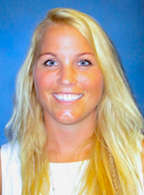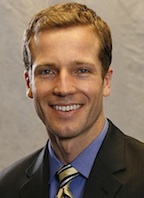Moonlighting Policy
There is no “internal moonlighting” within Radiation Oncology at UCSF. “External moonlighting” is defined as work for pay performed at a site that does not participate in our resident’s training program. The most common type of external moonlighting performed by Radiation Oncology residents involves coverage of an external Radiation Oncology practice by a senior Radiation Oncology resident during vacation time away from UCSF.
Moonlighting is NOT required. Moonlighting IS ALLOWED, but ONLY if these criteria are met:
- It is the responsibility of each resident to ensure that he / she is in compliance with the UCSF Department of Radiation Oncology Residency Training Program Moonlighting Policy.
- Because residency education is a full-time endeavor, residents must ensure that moonlighting does not interfere with their ability to achieve the goals and objectives of their educational program.
- Residents are responsible for ensuring that moonlighting and other outside activities do not result in fatigue that might affect patient care or learning.
- Hours spent moonlighting count toward the Duty Hours limitations, and residents are responsible for complying with ALL aspects of the Duty Hours policy:
- Duty hours are limited to 80 hours per week averaged over a 4-week period, inclusive of all in-house call activities and all moonlighting.
- Residents are provided at least 1 day in 7 free from all educational and clinical responsibilities, averaged over a 4-week period, inclusive of call. 1 day is defined as 1 continuous 24-hour period free from all clinical, educational, and administrative activities. (Studying and preparation time for conferences do not count as duty hours). It is essential for patient safety and resident education that effective transitions in care occur. Residents may be allowed to remain on site following their maximum 24-hour shifts as appropriate to accomplish these tasks. However, this period of time must be no longer than an additional 4 hours. Residents and clinical fellows must not be assigned additional clinical responsibilities after 24 hours of continuous in-house duty. In unusual circumstances, residents, on their own initiative, may remain beyond their scheduled period of duty to continue to provide care to a single patient. Justifications for such extensions of duty are limited to reasons of required continuity for a severely ill or unstable patient, academic importance of the events transpiring, or humanistic attention to the needs of a patient or family. Under these circumstances, the trainees must appropriately hand over the care of all other patients to the team responsible for their continuing care; and document the reasons for remaining to care for the patient and submit documentation in every circumstance to the program director. The program director must review each submission of additional service and track both individual trainee and program-wide episodes of additional duty.
- Residents are provided at least 10 hours free between daily duty periods and 8 hours between scheduled duty periods. Intermediate-level residents are provided at least 14 hours free of duty after 24 hours of in-house duty. R1, R2, and R3 residents are considered to be at the intermediate level.
- There are inevitable and unpredictable circumstances in which trainee duty periods may become prolonged. In these instances, residents and clinical fellows must still have a minimum of 8 hours free of duty before the next scheduled duty period begins.
- No new patients may be accepted after 24 hours of continuous duty. For Radiation Oncology, 24 hours of continuous duty will be defined as performing in-house duties (including transit time) for the majority of the period from midnight to 6:00 a.m. after performing normal clinical duties the prior day.
- Time spent in the hospital by residents on at-home call counts towards the 80-hour maximum weekly hour limit. The frequency of at-home call is not subject to the every third night limitation, but must satisfy the requirement for one day in 7 free of duty when averaged over a 4-week period. At-home call will not be so frequent or taxing as to preclude rest or reasonable personal time for each resident. Residents are permitted to return to the hospital while on at-home call to care for new or established patients. Each episode of this type of care must be included in the 80-hour weekly maximum but will not initiate a new off-duty period.
- R4 residents are considered to be in the final years of education. R4 residents must be prepared to enter the unsupervised practice of medicine and care for patients over irregular or extended periods. This preparation must occur within the context of the 80-hour maximum duty period and one-day-off-in-7 standards. It is desirable that R4 residents have8 hours free of duty between scheduled duty periods in their final years. There may be circumstances when these residents must stay on duty to care for patients or return to the clinical setting with fewer than 8 hours free of duty. Circumstances of return to hospital activities with fewer than 8 hours away from the hospital by R4 residents must be monitored by the program director.
- The Radiation Oncology Residency Training Program monitors Resident duty hours using the E-GME / E*Value system.
- Residents must use the E-GME / E*Value duty hours tracking tool to log all duty hours.
- External moonlighting hours must be documented using the E-GME / E*Value duty hours tool and must comply with the written policies of the ACGME, UCSF GME and the Department of Radiation Oncology Residency Training Program Duty Hours policies.
- In an effort to maintain accuracy of duty hour logs, duty hours must be logged in the E-GME / E*Value system daily or no less than once per week.
- Resident duty hour logs will be periodically reviewed by the program director in the E-GME / E*Value system using the duty hour reports feature (e.g. statistics reports and violation reports).
- Written PRE-APPROVAL of the moonlighting activity by the program director IS REQUIRED. It is the resident’s responsibility to complete the attached form and obtain written permission to moonlight from the program director prior to beginning the moonlighting activity.
- External moonlighting hours must be documented (including days, hours, location, and brief description of type of service(s) provided) in order to comply with Medicare reimbursement requirements for GME. The attached “Moonlighting Documentation Form” is to be used for this purpose.
- It is the program director’s responsibility to monitor resident performance in the program to ensure that moonlighting activities are not adversely affecting patient care, learning, and/or resident fatigue. The program director may enlist the assistance of the chief resident and/or the attending physician(s) with whom the resident is working to help with this monitoring. If the program director determines that the resident’s performance does not meet expectations, permission to moonlight will be withdrawn.
• The program director will also monitor compliance with the Duty Hours policy. If moonlighting is interfering with Duty Hours involved in the training program, permission to moonlight will be withdrawn. - Moonlighting activity (if any) and policy will be reviewed at least yearly at Radiation Oncology departmental Program Evaluation and Improvement Committee meetings. Any adverse effects will be discussed.
- The program director will submit moonlighting activity reports as required by the GMEC.
EXTREMELY IMPORTANT:
• While engaged in external moonlighting, residents are NOTcovered under UC’s professional liability insurance program as the activity is outside the scope of university employment. Individual moonlighting residents are responsible for obtaining their own radiology X-ray supervisor and operator certificate (www.dhs.ca.gov/publications/forms/pdf/rh4038.pdf). The trainee is responsible for ensuring liability coverage from another source, DEA licensure, Medicare (or other governmental) provider number and billing training, and licensure requirements by the California Medical Board as well as any other requirements for clinical privileging at the employment site.
• Any resident/fellow moonlighting without permission will be subject to disciplinary action.
UCSF Radiation Oncology Moonlighting Policy and FORM for Residents
Approval Form


